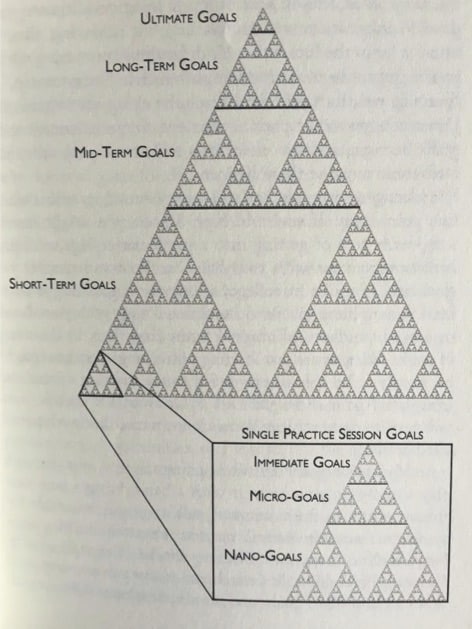1. First Things First.
Preparing your space, your instrument, and your mind, are the foundations of great practice session.
-
Is your space comfortable, free of distractions, and have everything you’ll need to stay put and focus?
-
Is your instrument functional, tuned, and properly amplified?
-
Is your mind ready to stay focused?
2. Create Your Path.
Music making is a creative, intellectual, and physical process. Understanding a hierarchy of goals will let you know which approach to use and when. Here is a visual representation.
This fractal, representing a hierarchy of goals, was compiled by Jonathan Harnum, author of The Practice of Practice.
● We must focus on an ultimate goal because it is our “north star” in making decisions down the flow of the triangle.
● Notice the Single Practice Session Goals. The immediate goal is the determining factor for the actual tasks we do during practice.
